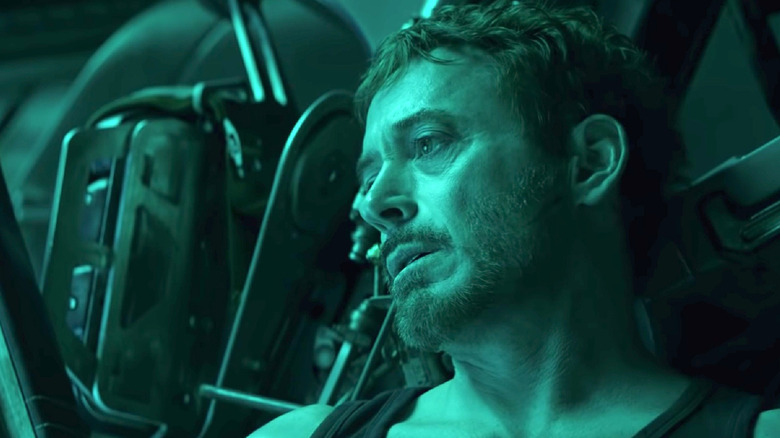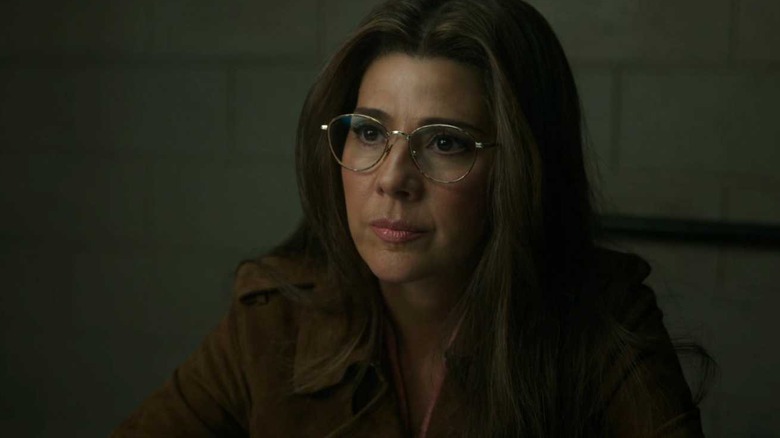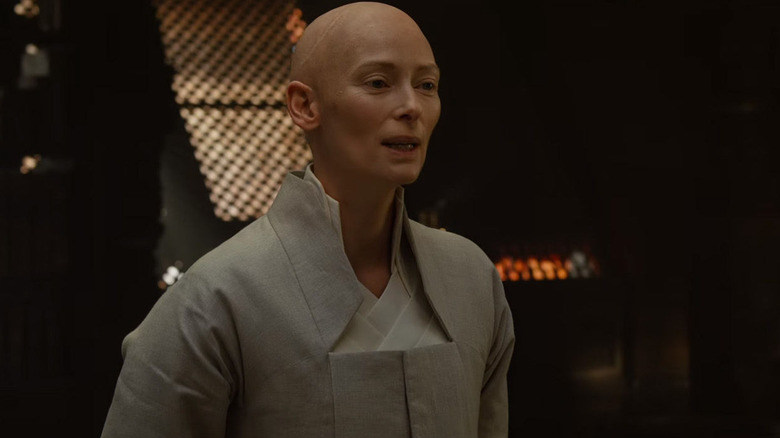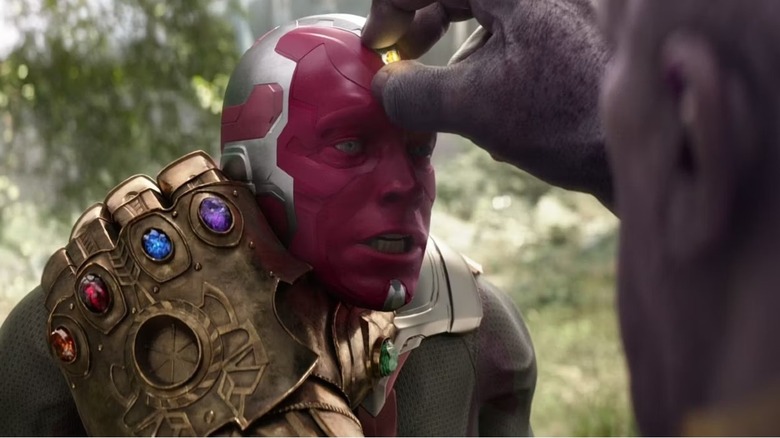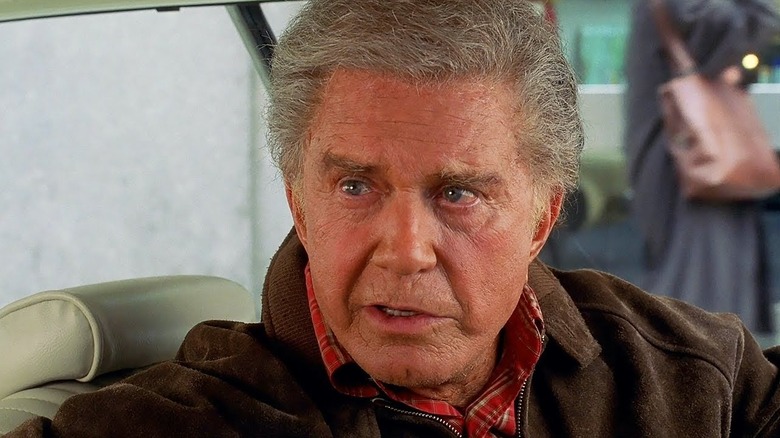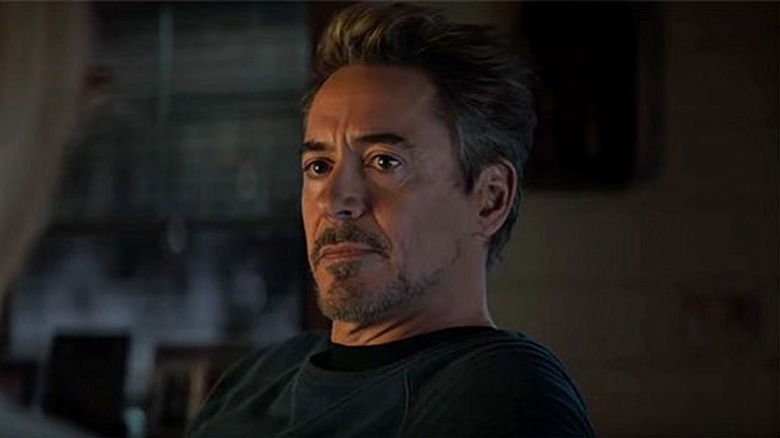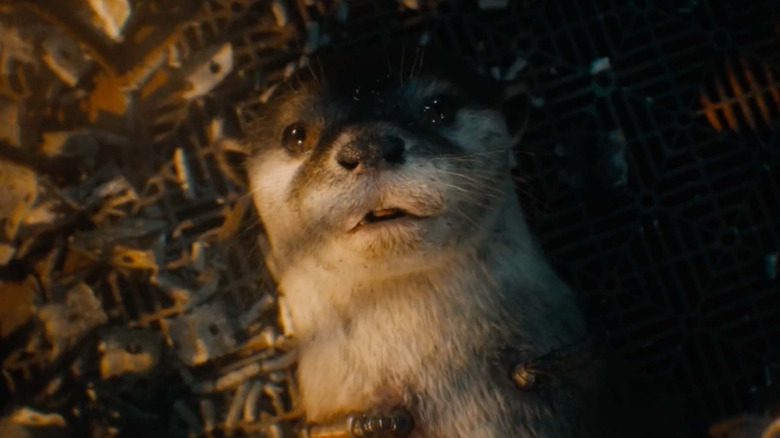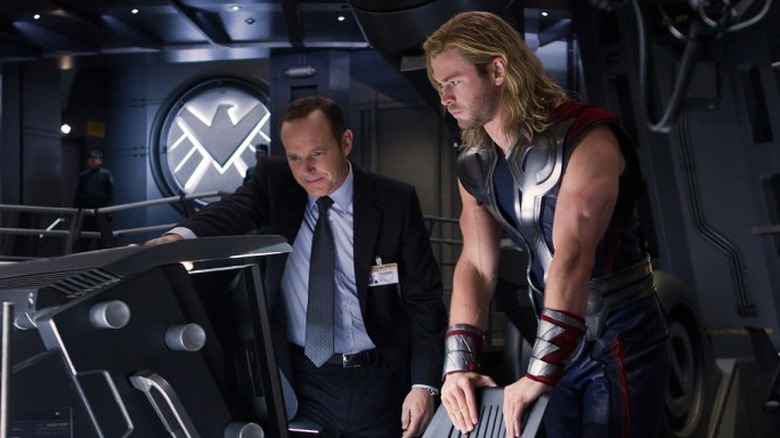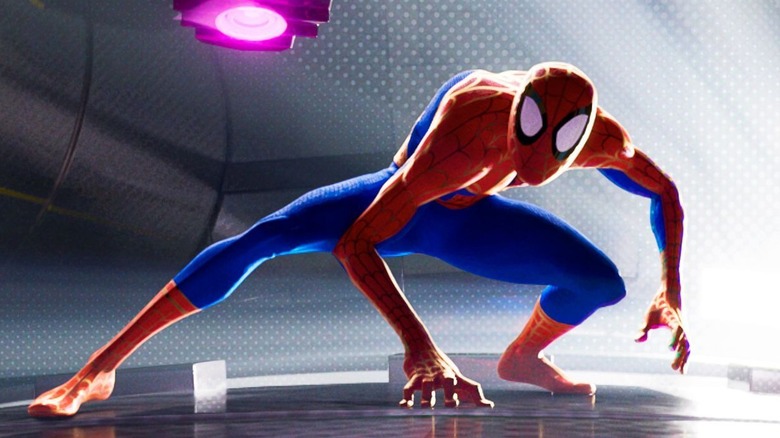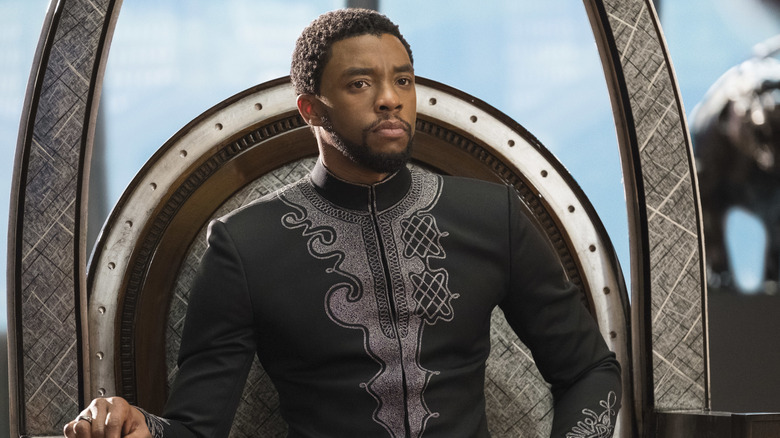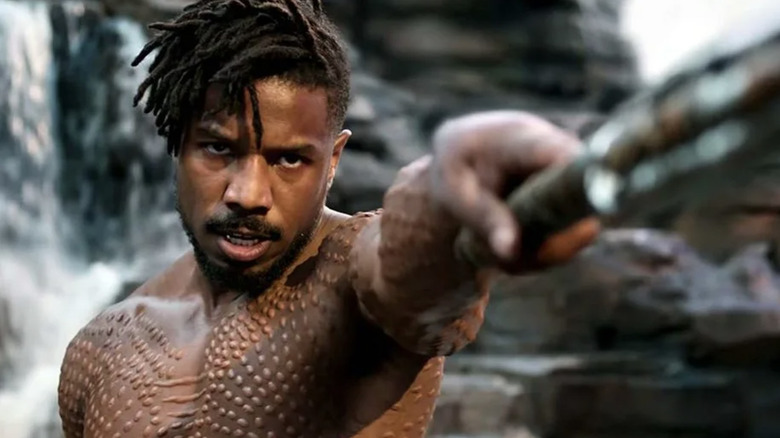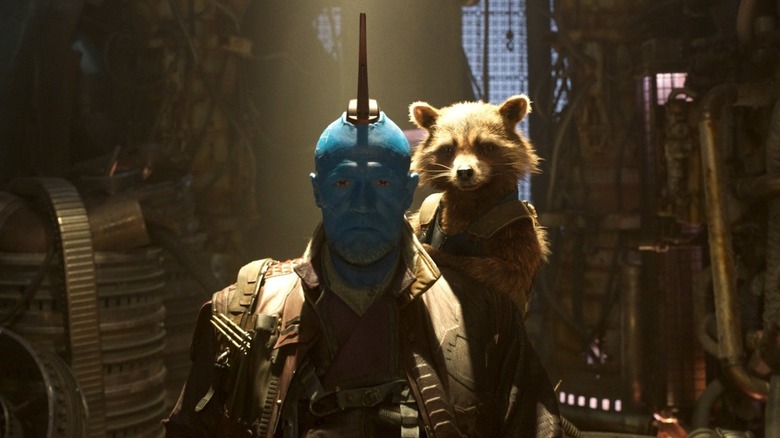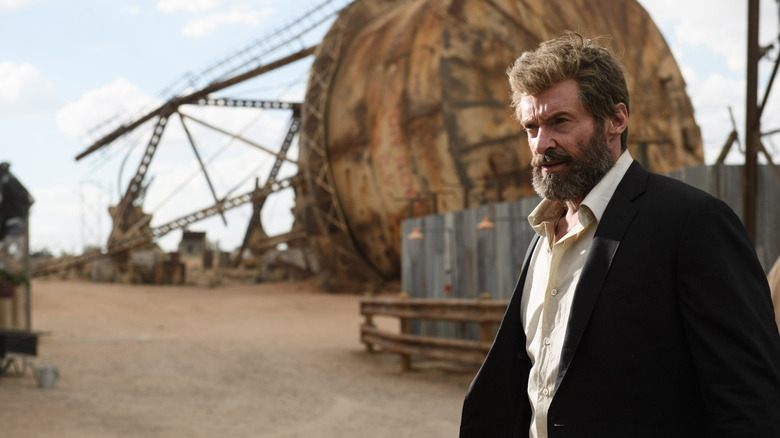The Saddest Marvel Movie & TV Show Deaths Ranked
It has often been said that nobody in Marvel Comics lore stays dead except for Uncle Ben. The various movie adaptations of those Marvel characters have certainly kept the tradition of death being highly fluid alive and well. Countless beloved characters, like Tom Hiddleston's Loki and Willem Dafoe's Norman Osborn/Green Goblin, have found ways to come back from seemingly permanent deaths.
Thanks to factors like the multiverse, everyone dead in the MCU so far can possibly return one day. However, despite this inescapable reality, the deluge of film adaptations of Marvel characters over the last few decades has produced some truly meaningful death scenes. Whether or not they got reversed later on is immaterial. In the moment, these sequences got audiences to sob over the most unlikeliest of characters.
Why did these Marvel movie death scenes work as well as they did? The reasons are endless, but include especially inspired casting, the larger narrative role these deaths served, specific pieces of dialogue in these death sequences, and so much more. There's no getting around that Marvel characters tend to cheat death as easily as most of us mere mortals breathe. However, that fact escapes one's brain while ranking the saddest Marvel movie death scenes, as we instead remember the unforgettable emotional experiences these sequences produced.
12. Aunt May in Spider-Man: No Way Home
In a twist on the regular Spider-Man mythos, the Marvel Cinematic Universe version of this web-crawler kept Uncle Ben as an exclusively off-screen presence. Though every villain who's killed Spider-Man's Uncle Ben left an indelible mark on the hero, this franchise had other plans for Spidey's origin story. For this incarnation of Peter Parker (Tom Holland), the role of a surrogate parental figure who says "with great power comes great responsibility" fell to Aunt May (Marisa Tomei).
Tragically, like Ben, she eventually perishes in a moment that forever changes Peter. During "Spider-Man: No Way Home," a showdown with Norman Osborn/Green Goblin (Willem Dafoe) kills May, who eventually dies in front of Peter. It's a tragic event made all the more bittersweet because May (who works with local charities in this universe) is the one who implores Peter to help Osborn and the other multiversal supervillains.
May teaches kindness and empathy to Peter yet, unfortunately, letting Osborn live leads to her death. But May's death doesn't just happen as a sidenote in the jam-packed narrative of "No Way Home." It's a critical turning point for Peter and briefly leads him to consider that there's no hope left in the world. Coping with this devastating loss allows him to bond with two alternate-universe Spider-Men (Tobey Maguire and Andrew Garfield), whose respective plights with Uncle Ben mirror Peter's struggles with May's demise. In terms of tearjerker effectiveness and narrative usefulness, Aunt May's "No Way Home" passing is a deeply effective tragedy.
11. The Ancient One in Doctor Strange
The Ancient One's (Tilda Swinton) death in "Doctor Strange" isn't necessarily sad because of how she physically perishes. What makes this event so poignant is the conversation she and Doctor Strange (Benedict Cumberbatch) have in her final seconds of existing. The duo speak in their astral plane forms on a New York City balcony, with time slowing down to a crawl around them.
Looking at their surroundings, The Ancient One softly smiles and remarks how often she's ignored chances to appreciate these kinds of views. She then imparts valuable advice to Strange, saying that not everything is about him. Relationships, wizardry, saving the world, these are all things that are much bigger than any one human being, let alone cocky former surgeon Stephen Strange.
At the end of this exchange, Strange turns around for one moment and ... she's gone. The Ancient One's astral form vanishes just as her physical body flatlines. So ends a deeply beautiful sequence showing a character at peace with their impending demise. There's a wistful reflectiveness in this quiet scene that lets audiences savor the reality that this thoughtful presence is about to vanish from both Strange's life and the movie. It's also terrific that The Ancient One's death conjures up more of the striking imagery that defined the first "Doctor Strange" film. Truly, The Ancient One's passing was like no other Marvel movie death.
10. Vision in Avengers: Infinity War
Many iconic Marvel movie deaths are not voluntary. The heroes often perish at the hands of villains who have no consideration for when or how they want to die. For Vision's (Paul Bettany) first death in "Avengers: Infinity War," this gets somewhat subverted. Realizing that the Infinity Stone in his head — the Mind Stone — needs to be destroyed before Thanos gets to it, Vision pleads with his lover Wanda Maximoff (Elizabeth Olsen) to kill him before Thanos does. "Don't worry," Vision reassures her, "you could never hurt me." A tearful Wanda doesn't want to say good-bye to her love, but she has no choice. She uses her superpowers to destroy the Mind Stone, thus killing Vision, who chooses to go to his death on his own terms.
It's a moment of tremendous sorrow grounded in the reality that Vision volunteers to go out like this — this is not a random mugging or super-villain victory that slaughters him, but rather his own decision that seals his fate. To twist the knife further into viewers, though, this is not the last time Vision dies in "Infinity War." Moments after Vision initially flatlines, Thanos uses the Time Stone to turn back time and take the Mind Stone for himself before Wanda can stop him. This means moviegoers get to witness Vision dying twice in "Infinity War," the second of which is a gruesome slaughter made extra unnerving by following up Vision's initial self-sacrifice.
9. Uncle Ben in Spider-Man
Inevitably, the first live-action "Spider-Man" movie had to deal with Uncle Ben's tragic demise. After all, it's the impetus for the Spider-Man we all know and love to finally exist. Losing Ben forces Peter Parker to realize that "with great power comes great responsibility" is a phrase with real weight behind it.
Sam Raimi's "Spider-Man" realized this death with deeply moving results largely because of performer Cliff Robertson. A Hollywood legend with decades of memorable roles under his belt, Robertson delivered one of his most high-profile performances as Uncle Ben in this Tobey Maguire star vehicle. Throughout all of "Spider-Man," Robertson lends a genial and wise aura to Ben. He's totally believable as a figure of both comfort and advice, which just makes Ben's inevitable death all the more tragic.
Robertson has rendered Ben as such a kind-hearted soul that the idea of him getting viciously gunned down is shattering. Robertson's portrayal of Ben dying on a sidewalk, choking out his final words to Peter, is deeply moving. After decades of this death looming large over Spidey's comic book exploits, expectations were sky-high on how "Spider-Man" would deliver Uncle Ben's passing. How could the inaugural live-action depiction of this key Spider-Man event live up to its legacy? Thanks to the ingenious casting of Cliff Robertson, this demise was realized with impeccable skill.
8. Tony Stark in Avengers: Endgame
"I imagine death so much it feels more like a memory." That iconic "Hamilton" line may as well be referring to the Marvel Cinematic Universe incarnation of Tony Stark/Iron Man. The first time audiences met this character in 2008's "Iron Man," he was nearly murdered in an ambush by the forces of the Ten Rings. From there, this eccentric billionaire constantly brushed up against death, including in the opening scene of "Avengers: Endgame" where he and Nebula (Karen Gillan) nearly starved to death in deep space.
Tony survived that scenario, though, before sacrificing himself to save all of existence in the grand finale of "Endgame." Here, Tony snaps the Infinity Gauntlet to wipe out Thanos (Josh Brolin) and all of his forces, killing himself in the process. After Thanos and the other evildoers have turned to dust, Tony survives in a deeply weakened state for a few moments to share final farewells with Rhodey (Don Cheadle), Peter Parker, and Pepper Potts (Gwyneth Paltrow).
Seeing such an inescapable fixture of the Marvel Cinematic Universe so visibly mortal, not to mention dead, never stops being a deeply devastating sight, no matter how many times one's watched "Endgame." Every detail about Tony's death here is so precisely crafted, right down to Iron Man having no dying words. How could it not be unforgettably moving to watch a man who spent so much energy over countless movies evading death "finally rest"?
7. Lylla in Guardians of the Galaxy Vol. 3
For the third solo "Guardians of the Galaxy" movie, Lylla (voiced by Linda Cardellini) and Rocket's other animal companions from the comics (visualized here as Teefs the walrus and Floor the rabbit) finally came to the big screen. They're depicted as Rocket's childhood pals, also suffering at the hands of The High Evolutionary (Chukwudi Iwuji). The sequences depict Rocket, Lylla, and these other critters finding solace from trauma in each other's company are incredibly engaging.
Of course, the overwhelming grimness of The High Evolutionary's world eventually permeates Rocket's only adolescent friendships. When the animals try to escape the clutches of their madman creator, Lylla is shot and dies in Rocket's arms. Though Lylla gets a much happier ending in the comics, deviating from the source material served "Vol. 3" well. Seeing such a pure figure perish, followed by Rocket's subsequent pained wail of agony, is an emotional double-whammy bound to send shivers down the spine of even the most jaded viewer.
In this moment, a pair of CG talking animals become deeply, emotionally real. A bunch of pixels haven't just passed away. Instead, a good friend named Lylla has perished. That Lylla's death immediately precedes the equally shattering demise of Teefs and Floor just heightens an already incredibly impactful slaying. Though she only appeared in one Marvel Cinematic Universe movie, Lylla's death was one of many reasons that Marvel geeks will never forget her.
6. Phil Coulson in The Avengers
When Phil Coulson (Clark Gregg) debuted in "Iron Man," he was an amiable but far from indispensable presence in the film. Over the next three years, he'd become a comforting and recurring face in the initial MCU movies. Once "The Avengers" rolled around, Coulson got his screentime bumped up tremendously while also getting more of a personality as a lovable goofball with a Captain America obsession. His multiple movie appearances had culminated in him becoming a delightful everyman in a feature populated by larger-than-life superheroes. That ordinary presence, so capably realized in Gregg's hands, just made it all the more tragic when Coulson bit the dust at the hands of Loki (Tom Hiddleston).
In a movie full of quips and amusing gags, "The Avengers" reaffirmed the emotional gravity of its universe by having Coulson die a nasty death (an impaling complete with a nauseating sound effect) on-screen. This was a zippier kind of superhero movie, but also one where danger and death were very much real. Coulson perishing while trying to take down Loki singlehandedly, not to mention getting one more good zinger ("so that's what that does") before he passes, made his death scene even more noteworthy. Sure, Coulson later got resurrected on the TV program "Agents of S.H.I.E.L.D.," but since that show eventually spiraled out into its own continuity, the emotional impact of Coulson's "Avengers" demise remains intact. Who knew such a powerful sequence would have been possible just from Coulson's "Iron Man" screentime?
5. Peter Parker in Spider-Man: Into the Spider-Verse
It's already deeply sad to watch Peter Parker (Chris Pine) perish at the hands of Wilson Fisk/The Kingpin (Liev Schreiber) in "Spider-Man: Into the Spider-Verse." After all, this demise comes right after Peter is being his usual heroic self, not to mention trying to warn Fisk that his elaborate plans involving alternate dimensions will only end in failure. However, what makes this "Spider-Verse" death especially moving is the scene that depicts New Yorkers discovering Peter's passing. In a captivating montage, various New York denizens gasp and become emotional over seeing on their phones and nearby TV's that this spectacular web-crawler is deceased.
The way "into the Spider-Verse" depicts the ripple effects of everyday people learning about an extraordinary superhero dying is remarkable. It's extra impressive that the script dovetails this sequence directly into the saga of Miles Morales (Shameik Moore), with Mary Jane's (Zoe Kravitz) memorial speech for Peter reminding Miles that heroes can emerge anywhere. Everything about Peter's death, including just how brutal the initial slaying is (particularly in the confines of a PG-rated American animated movie), makes it a passing that leaves a tremendous mark on viewers.
4. T'Challa/Black Panther In Black Panther: Wakanda Forever
"Black Panther: Wakanda Forever" opens against a black screen, with audiences hearing Shuri (Letitia Wright) shouting frantically that she's looking for a cure to her brother's fatal disease. By the end of this prologue, her efforts have failed and the king is dead. This sequence immediately establishes that "Wakanda Forever" is mimicking reality: T'Challa/Black Panther is deceased, like the iconic actor (Chadwick Boseman) who portrayed him.
In contrast to nearly all other superhero movie deaths, "Wakanda Forever" opts for restraint. "Black Panther: Wakanda Forever" doesn't explain how T'Challa passed away. In fact, the character's presence is just limited to drawings on a wall ... until the film's final scene. As Shuri sits and reminisces about her brother, she flashes back to memories of T'Challa. For the first time in the entire movie, footage of Boseman fills the screen. This delicate and impeccably-timed touch crystallizes how well "Wakanda Forever" handles the passing of two pivotal figures, one fictional, one real.
By the end of "Wakanda Forever," the film has probed the complexities of coping with grief after a tremendous loss so effectively that concluding with archival footage of Boseman feels earned, not exploitative. This montage is a perfect capper to "Wakanda Forever" and epitomizes the feature's unique approach to chronicling the passing of a superhero movie character — and the beloved performer who brought him to life.
3. Erik Killmonger in Black Panther
Normally, the demise of villains in comic book movies doesn't inspire much from audiences beyond, in the best circumstances, fist-pumps. Nobody dabbed tears from their eyes when Kro got sliced to pieces in "Eternals," nor did moviegoers profoundly weep seeing Electro perish in "The Amazing Spider-Man 2." Erik Killmonger (Michael B. Jordan) in "Black Panther" is a totally different story. Writer-director Ryan Coogler depicts the moment T'Challa plunges a spear into Killmonger's chest not as a triumphant victory but as mournful. The preceding movie has done such a great job getting inside Killmonger's head and understanding his psychology that his demise is a tragedy.
Jordan's pained delivery of Killmonger's final lines, including him tearfully recalling how ridiculous it was for him to have dreams of seeing a Wakandan sunset as a kid, just make his final moments all the more emotionally devastating. A final scene of T'Challa and Killmonger watching a sunset together is another deeply moving and unexpected twist to how typical superhero movies handle villain deaths.
Then, of course, there's Killmonger's final line where he remarks, "Just bury me in the ocean with my ancestors who jumped from ships, cause they knew death was better than bondage." It's a masterfully poetic piece of dialogue destined to become remembered in the history of cinema. It's also a line that solidifies Killmonger's death as among the most tear-inducing in all Marvel movie adaptations.
2. Yondu in Guardians of the Galaxy Vol. 2
Ask any general moviegoer before 2014 who Yondu was and you'd have received a blank stare. This obscure Marvel figure didn't even register in the minds of many comic book geeks for decades. However, despite this reality, Yondu was brought to live action through Michael Rooker's lively performance in 2014's "Guardians of the Galaxy." For "Guardians of the Galaxy Vol. 2," Yondu got even more screentime, including peeks into his backstory and a gangbusters scene where he slaughters armies of pirates to the tune of "Come a Little Bit Closer."
Once the movie reached its finale, audiences were so invested in this scoundrel that Yondu's "Guardians Of The Galaxy Vol. 2." death was more important than you think. That sequence involves Yondu freezing in the vastness of space to save his adopted son Peter Quill (Chris Pratt). Yondu perishes on-screen while gazing into the eyes of Quill, the two having finally made peace in their fractured relationship. Afterward, Yondu's death is made all the more poignant through a deeply moving funeral service that reaffirms the various bonds this space pirate made in his lifetime.
In these final scenes, "Guardians of the Galaxy Vol. 2" wrung an avalanche of pathos and humanity out of a blue alien that was once the furthest thing possible from a household name. After his "Vol. 2" death, though, moviegoers all across the planet were guaranteed to never forget Yondu's name.
1. Wolverine in Logan
After 17 years, the Wolverine (Hugh Jackman) that audiences first met in 2000's "X-Men" finally perished in "Logan." A character introduced and constantly reinforced as the ultimate loner finally dies protecting the next generation of mutants, including his "daughter" Laura/X-23 (Dafne Keen). As life drains out of him, Wolverine holds Laura close and remarks that he finally knows what true mortality feels like. Afterward, Laura and the other adolescent mutants have a ramshackle funeral for Wolverine before they quietly walk away to a hopefully brighter future. It's an appropriately mournful ending that truly lets the impact of Wolverine's passing simmer.
Director James Mangold's willingness to let there be so much silence in this sequence, especially after the youngsters leave Wolverine's grave, makes the severity of this event particularly tangible. Only heightening the deep emotions of this conclusion is the choice to have Wolverine perish in an act of heroism. After denying that he cared about others for so long, Wolverine's final moments are spent protecting other, more vulnerable human beings.
Combine all that with Hugh Jackman's transfixing depiction of the character's final moments (particularly in his pained delivery of the man's last words) and it's no wonder this sequence inspired viewers everywhere to tears. Heck, its staggering emotional power even got explicitly referenced in a meta "Deadpool and Wolverine" scene.
